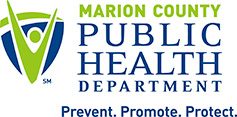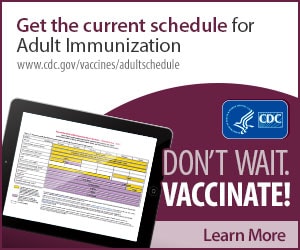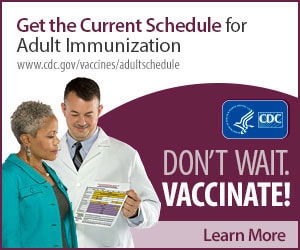Think you’re too old for vaccines? Some childhood vaccinations will not protect you for the rest of your life. As an adult, you still need vaccines to stay healthy and to protect others in your home. You should also encourage other adults in your family to check with their doctors to find out if they may need immunizations to help protect against vaccine-preventable diseases.
Adult immunizations protect against diseases such as
- Tdap Vaccine: Protects against tetanus, diphtheria, and pertussis (whooping cough).
- HPV Vaccine: Protects against human papillomavirus, which causes most cases of cervical and anal cancers, as well as many oral cancers. Each year in the United States, approximately 31,000 men and women get cancer caused by HPV infection. That’s a new case diagnosed EVERY 20 MINUTES! the vast majority of these cancers can be prevented in the future by vaccinating now!
- Shingles Vaccine: People looking to receive the shingles vaccine now have two options. The Food and Drug Administration in 2017 approved Shingrix as the preferred alternative to Zostavax, which was approved in 2006. Both vaccines are approved for adults age 50 and older for the prevention of shingles and related complications, whether they’ve already had shingles or not.
- Pneumococcal Vaccine: Pneumococcal vaccine is recommended for adults with specific health conditions. More information about who should get pneumococcal vaccine.
- Seasonal Flu Vaccine: Everyone 6 months of age and older should get a flu shot every year. This vaccine contains several strains of protection and changes every year. This is why it is so important to receive one yearly.
The specific immunizations you need as an adult are determined by factors such as your age, lifestyle. high-risk conditions, type and locations of travel, and previous immunizations. Take this quiz to see which vaccines you need!
Vaccine Safety
Research has demonstrated that vaccines are both safe and effective. Vaccines are held to the highest standard of safety and the United States currently has the safest, most effective vaccine supply in history. There is no scientific evidence that immunizations cause autism or that giving multiple shots can harm or “over load” the immune system. Side effects can occur with any medicine, including vaccines. Slight discomfort (such as pain at the injection site) is a common, non-serious side effect. Serious reactions to vaccines are very rare. Anyone who receives a vaccine should be informed about both the benefits and risks of vaccination. More information on vaccine safety is available at: www.cdc.gov/vaccinesafety/index.html
For more information, visit CDC.gov/vaccinate, Children’s Hospital of Philadelphia and Immunization Action Coalition





